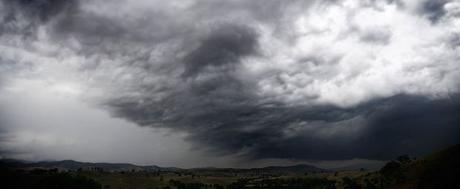
“Then the LORD said, “My Spirit shall not strive with man forever, because he is also flesh; nevertheless his days shall be one hundred and twenty years.” (Genesis 6:3)
Last time, we considered that the Flood was sent because of the widespread unmitigated evil, rebellion, and sinfulness that had utterly covered the entire Earth. Some have objected that the Flood seems like a rather severe and harsh action for God to take. It was severe. The depravity of mankind had become severe and warranted a severe response. But was the Flood truly a “last resort” for God, had He really tried to persuade mankind to turn away from their evil ways before He opened the floodgates?
I remember when I was very young watching the old movie “The Bible” on TV. Seeing John Huston portraying Noah, standing out in an open field, hammering away on his Ark, while onlookers garbed in colorful, gaudy outfits laughed him to scorn, made me think, yeah, Noah must have seemed awfully silly! But did Noah really just start quietly building the Ark one day? Did those who were soon going to be destroyed in a cataclysmic deluge have any other warning than their “eccentric” neighbor’s construction of a huge boat far, far from the coastline?
The answer is, yes, they did receive a great deal of warning.
The Testimony Of Noah
“Who once were disobedient, when the patience of God kept waiting in the days of Noah, during the construction of the ark, in which a few, that is, eight persons, were brought safely through the water. (1 Peter 3:20)
The entire time that Noah and his sons were constructing the Ark, God was patiently waiting for anyone who wanted to turn to Him. Hebrews 11:7 tells us that Noah’s response to God in faith served to “condemn the world.” Noah was not quietly building his Ark off in a remote garage somewhere, he was doing it in broad daylight for all to see. We also know that Noah was preaching to the people who were watching his work because Peter tells us in 1 Peter 3:18-20 that the Spirit of the Lord was speaking through Noah at the time, warning them to repent and turn to God.
The Testimony of Enoch
“It was also about these men that Enoch, in the seventh generation from Adam, prophesied, saying, “Behold, the Lord came with many thousands of His holy ones, to execute judgment upon all, and to convict all the ungodly of all their ungodly deeds which they have done in an ungodly way, and of all the harsh things which ungodly sinners have spoken against Him.” (Jude 14-15)
While this prophecy will ultimately be fulfilled when our Lord returns, judgment was certainly carried out against all of the ungodliness of the ungodly with the coming of the Flood. Enoch had bore witness that God would soon judge mankind’s wickedness.
The Testimony of Methuselah
While we do not have a specific account of Methuselah, Enoch’s son and Noah’s grandfather, preaching or prophesying, it is reasonable to assume that the man who lived longer than anyone else in the Bible had a great deal of information to share with those around him. If we calculate the ages given of those listed in Genesis 5, we see that Adam himself was still alive when Methuselah lived. Methuselah bridged the entire span of human history up to that point, dying the very year that the Flood came upon the Earth. Methuselah was not, therefore, subjected to the judgment of the Flood, suggesting that, while he was not characterized as “walking with God” as his father and grandson were, he must have walked upright before the Lord. I believe that the man who likely heard first-hand accounts of God’s dealings with Adam, and lived to see his own father translated to be with the Lord, would have been someone whose testimony should have been heeded.
The Testimony of The Holy Spirit
“Then the Lord said, “My Spirit shall not strive with man forever, because he also is flesh; nevertheless his days shall be one hundred and twenty years.” (Genesis 6:3)
How much time is needed for a person to repent and turn to God? The Holy Spirit was drawing those who lived upon the face of the Earth to Himself for 120 years preceding the Flood. God was working on the hearts of men even as their ears were filled with the witness that Noah was preaching to them.
God’s judgment of the Flood was not a rash, impulsive act, born out of God’s “hot anger” with man. Ample warning was given for those at the time to turn from their sin and be reconciled to the Lord. They chose to reject Him. God’s judgments do not come swiftly and without warning. Time is always given for people to turn to Him and escape the coming wrath. But His patience will only go so far until the time does eventually come for His righteous judgments to be carried out. The day does come when it is too late. God will never again destroy all flesh on the Earth with a flood. But a Day of Judgment is coming. May we call upon His name and be reconciled to Him before that day comes for us.
To Jesus Christ goes all glory. In service to Him,
Loren
[This post was originally published October 8, 2009]
**Unless otherwise indicated, all Scripture quotations are taken from the New American Standard Bible (NASB) © The Lockman Foundation and are used by permission.
[If you do not know the Lord Jesus Christ or you are not certain where you are headed when this life ends, I invite you to read the article “Am I Going To Heaven?“]
Advertisements